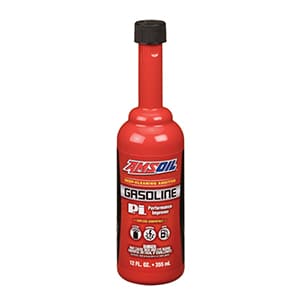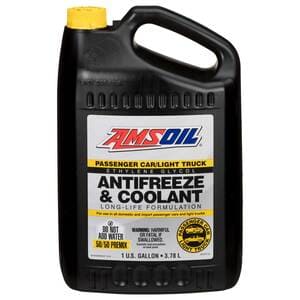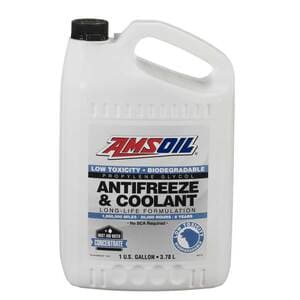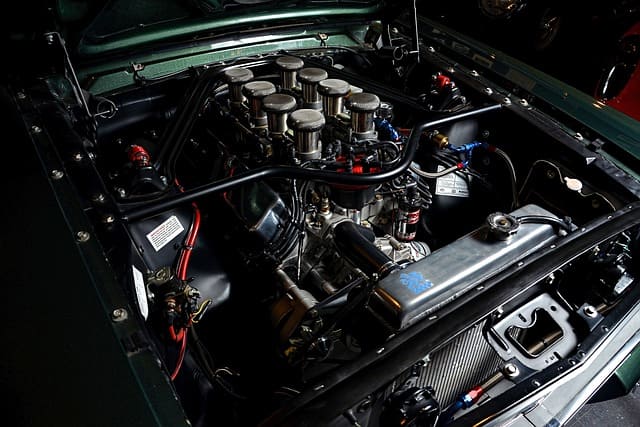The terms “pre-ignition” and “engine detonation” are commonly interchanged in discussions regarding engine knock. Pre-ignition occurs when the fuel/air mixture ignites prematurely before the spark plug initiates combustion. This premature ignition disrupts the engine’s normal operating cycle and can lead to significant damage if left unchecked. On the other hand, engine detonation manifests as the spontaneous combustion of the remaining fuel/air mixture in the combustion chamber after the spark plug has already started the combustion process. Characterized by a sudden increase in pressure, engine detonation can result in knocking sounds, reduced engine performance, and potential engine damage if not promptly addressed. Understanding the distinctions between pre-ignition and engine detonation is crucial for diagnosing and resolving engine knock issues effectively.

In a properly functioning internal combustion engine, the spark ignition typically occurs a few degrees prior to the piston reaching its top dead center during the compression stroke. This precise timing is essential to ensure optimal combustion efficiency and power output. By igniting the air-fuel mixture slightly ahead of the piston’s upward movement, the expanding gases generated from the combustion process provide a force that synergizes with the downward motion of the piston. This synchronized action maximizes the conversion of fuel energy into mechanical work, resulting in improved engine performance and fuel economy. Additionally, the timing of the spark ignition plays a critical role in preventing engine knocking and maintaining smooth operation throughout the combustion cycle.
When subjected to excessive heat and pressure, engines may experience detonation, leading to engine knock. This disruptive phenomenon can be detected by the sophisticated computer systems present in modern vehicles, which subsequently adjust the engine timing to mitigate the effects of engine knock. Although this preemptive action serves to safeguard the engine against potential damage, it is essential to recognize that these adjustments may have ramifications on the overall performance and fuel efficiency of the vehicle.
Understanding Engine Detonation: Causes and Prevention Strategies

Engine detonation, a critical issue faced by many vehicle owners, can be attributed to various factors that demand attention. Among the primary culprits contributing to engine detonation and knock are pre-ignition, excessive heat, and low fuel quality. Pre-ignition occurs when the air-fuel mixture ignites before the spark plug fires, leading to erratic combustion and potential damage to engine components. Excessive heat, often a result of poor cooling system maintenance or incorrect fuel-to-air ratio, can accelerate the detonation process. Additionally, low-quality fuel with inadequate octane ratings can cause premature ignition, triggering engine knock. Understanding these root causes is crucial for preventing engine detonation and ensuring the longevity of your vehicle’s performance.
The Hidden Dangers of Carbon Buildup: How It Causes Engine Detonation
The accumulation of carbon deposits within the combustion chamber can lead to detrimental outcomes when exposed to high temperatures. If left unaddressed, the carbon build-up possesses the potential to ignite any residual fuel remnants from the combustion process, thereby posing a significant risk of engine damage. Moreover, these deposits can also impede the proper functioning of fuel injectors by altering their spray patterns. Consequently, this disruption in the injector operation can result in an overabundance of unburned fuel within the system, leading to inefficient combustion and reduced engine performance.
In the United States, regulations mandate that gasoline sold in the market must adhere to a specific standard regarding the inclusion of detergent additives, referred to as the lowest additive concentration (LAC). The requirement for passing these regulatory tests is met with a necessity for incorporating a minimal quantity of these detergent additives into the fuel formulation. Consequently, the contemporary gasoline available in the market is characterized by a scarcity of these crucial detergent additives. This scarcity, in turn, paves the way for the gradual accumulation of undesirable deposits on critical components within the fuel system, thereby potentially impeding the optimal functionality and longevity of these vital parts.

Removing Carbon Buildup: AMSOIL’s Fuel Additives for Optimal Engine Performance
AMSOIL fuel additives offer an effective solution for cleaning your fuel system. The AMSOIL P.i.® Performance Improver Gasoline Additive stands out as a potent cleaner that delivers results with just a single tank of gas. It works diligently to remove impurities from various components that interact with the fuel, including both port and direct fuel injectors, intake valves, and combustion chambers. By effectively targeting these critical areas, AMSOIL P.i.® enhances engine performance and efficiency, ensuring optimal operation and longevity of your vehicle.
AMSOIL Upper Cylinder Lubricant is designed with specialized cleaning agents to effectively maintain the cleanliness of injectors. Unlike AMSOIL P.i.®, which targets and eliminates stubborn injector deposits that have the potential to diminish engine power and fuel efficiency, the Upper Cylinder Lubricant functions to ensure the ongoing cleanliness of both injectors and combustion chambers. Through consistent and routine application, this lubricant not only safeguards fuel economy and overall engine performance but also contributes to extending the longevity of engine components. By leveraging the combined benefits of AMSOIL products like Upper Cylinder Lubricant and P.i.®, drivers can optimize their vehicle’s operational efficiency and reliability over an extended period.

Troubleshooting Coolant System Issues: Identifying Detonation Causes
It is essential to ensure the proper functioning of your vehicle’s coolant system to prevent engine overheating and potential detonation. To do so, you should meticulously verify the coolant level and promptly top it up if it is below the recommended level. Additionally, if the issue of overheating persists, a comprehensive examination of the cooling system components must be conducted to identify any potential faults. In this process, it is crucial to look out for indications of a malfunctioning water pump, a missing fan shroud, an overheated thermostat, or a slipping fan clutch. These components play a critical role in the overall efficiency of the cooling system and require regular maintenance and attention to avoid any detrimental consequences.

AMSOIL coolants provide exceptional protection for your vehicle’s cooling system. AMSOIL Passenger Car & Light Truck Antifreeze & Coolant and Propylene Glycol Antifreeze & Coolant ensure efficient heat transfer and robust defense against corrosion, freezing, and boil-over incidents. These advanced coolants not only safeguard your engine in extreme temperatures but also excel in challenging operating conditions. The innovative formulation of AMSOIL coolants guarantees superior performance by promoting optimal thermal conductivity and durability, making them the ideal choice for maintaining your cooling system’s integrity and longevity.

Engine Knock: The Dangers of Using Incorrect Spark Plugs
Incorrect spark plugs not only generate sparks for combustion but also play a crucial role in transferring heat from the combustion chamber to the cylinder head. It is essential for spark plugs to operate within a specified heat range to ensure optimal engine performance. Using spark plugs that deviate from the manufacturer’s recommendations, such as those not specified by the original equipment manufacturer (OEM), can potentially lead to instances of engine knock, adversely affecting engine operation.
To prevent detonation and maintain the health of your engine, it is imperative to select and utilize the appropriate spark plugs as advised by the OEM. By adhering to the manufacturer’s recommendations regarding spark plug type and heat range, you can minimize the risk of engine knock and ensure smooth operation of your vehicle.

